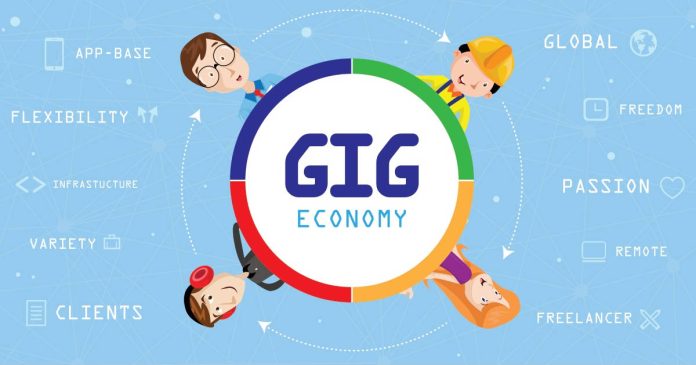Ada Aggarwal
In recent years, the gig economy has emerged as a significant force reshaping the landscape of work. Characterized by short-term contracts, freelance work, and on-demand services, the gig economy offers both opportunities and challenges for workers and businesses alike. This article delves into the evolution, impact, and future of the gig economy, highlighting its transformative role in the modern workforce.
Evolution of the Gig Economy
The gig economy is not a new phenomenon. Historically, many industries have relied on temporary or freelance workers. However, the advent of digital platforms has revolutionized the way gig work is sourced and managed. Companies like Uber, Airbnb, and Task Rabbit have become household names, connecting millions of gig workers with customers worldwide.
The proliferation of smartphones and internet access has further accelerated this trend. Today, anyone with a skill or service to offer can find work through various online platforms. This shift has democratized access to employment, allowing individuals to monetize their skills and time in ways that were previously unimaginable.
Benefits of the Gig Economy
One of the most significant advantages of the gig economy is flexibility. Gig workers can choose when, where, and how much they work, providing a level of autonomy that traditional employment often lacks. This flexibility is particularly appealing to those who need to balance work with other commitments, such as caregiving or education.
Moreover, the gig economy can serve as a valuable source of income for those who are unemployed or underemployed. It offers a way to bridge financial gaps and gain work experience, which can be crucial in a competitive job market. For businesses, the gig economy provides access to a diverse pool of talent without the long-term commitment of hiring full-time employees.
Challenges and Criticisms
Despite its benefits, the gig economy is not without its challenges. One of the most pressing issues is the lack of job security and benefits for gig workers. Unlike traditional employees, gig workers typically do not receive health insurance, retirement plans, or paid leave. This can lead to financial instability and increased vulnerability, particularly in times of economic downturn or personal crisis.
Additionally, the gig economy has been criticized for fostering a race to the bottom in terms of wages. With many workers competing for the same gigs, there is often downward pressure on pay rates. This can result in workers earning less than the minimum wage, especially when accounting for expenses such as transportation and equipment.
Regulatory Responses
Governments around the world are grappling with how to regulate the gig economy. Some have introduced legislation aimed at improving the rights and protections of gig workers. For example, California’s Assembly Bill 5 (AB5) sought to reclassify many gig workers as employees, entitling them to benefits and protections under labor laws. However, such measures have faced pushback from companies that argue they undermine the flexibility that makes gig work attractive.
In contrast, other regions have taken a more hands-off approach, allowing the gig economy to flourish with minimal regulation. This has led to a patchwork of policies and protections, with gig workers’ rights varying significantly depending on where they live and work.
The Future of the Gig Economy
The gig economy is poised to continue growing, driven by technological advancements and changing attitudes towards work. As automation and artificial intelligence reshape traditional industries, gig work may become an increasingly important source of employment. However, this growth will likely be accompanied by ongoing debates about workers’ rights and the role of regulation.
To ensure a sustainable and equitable gig economy, stakeholders must work together to address its challenges. This includes developing innovative solutions to provide gig workers with access to benefits and protections, while preserving the flexibility that makes gig work appealing. For example, portable benefits systems, which allow workers to accrue benefits regardless of their employer, could offer a way forward.
The gig economy represents a fundamental shift in the way we work, offering both opportunities and challenges. As it continues to evolve, it will be crucial to strike a balance between flexibility and security, ensuring that gig workers can thrive in this new economic landscape. By addressing the issues facing gig workers and embracing the potential of the gig economy, we can create a future of work that is inclusive, dynamic, and resilient.
Trending Now
E-Paper


